Gold of Our Fathers - [13]
Dawson at first didn’t understand what Kofi meant, but then he saw a faint brown border at the base of each building, the watermark of a notorious flooding of Dunkwa last year when torrents swelled the Ofin River beyond its banks.
“The police station is just here,” Kofi said, making a final left turn and pulling to a stop in front of the small building painted GPS-signature yellow and blue, or sometimes white and blue.
“Wait for me here, Kofi,” Dawson told him. “We will go somewhere else after this.”
“Yes, please.”
Obeng was waiting on the front verandah with a uniformed officer, whom he introduced as Inspector Sackie, a lanky man of about forty with a scar across his top lip.
“Good morning, sir,” he said to Dawson deferentially.
“Morning, Inspector.”
“Please, shall I give you a report first?”
“Let’s not waste precious time. You can tell me on the way there.”
CHAPTER SIX
The mining site was farther out than Dawson had expected. As they traveled more and more deeply into the bush along a laterite road whose red dust tarnished the vegetation alongside it, his sense of direction told him they must have been diverging from the course of the Ofin to meet it at some farther point along its course.
“This road,” Inspector Sackie said, “the Chinese built it.”
So they have been good for something, Dawson thought. If they had not constructed it, there might have been no road at all.
But the good roadwork came to an end as Kofi reached a point where a long, deep puddle obliterated the road’s surface. Only a 4x4 could get through that. Dawson and the two other men got out, skirted the border of the puddle to avoid sinking into the muddy thigh-deep water, and continued to their destination on foot.
“What is that noise?” Dawson asked, becoming aware of a monotonous drone in the distance somewhere to their right.
“Excavators,” Sackie said.
As they walked, the noise grew louder, and over a small rise, the source became evident-a vast area below them ploughed up in a fashion similar to what Dawson had just seen close to Dunkwa. To the right, four excavators were clawing up soil from the sides of deep pits and transferring them to the side. His instincts about the Ofin River had been correct. It had reappeared in the distance, making a wide U with the convex side toward them.
Ahead and to the left of more gouged-out pits, Dawson saw a stationary excavator, its claw bucket resting on the ground like an exhausted animal, and not far away from that, a crowd of people was staring at and discussing a deep, wide cavity in the mudbank. Yellow cordon tape had been strung up using the shafts of four shovels, but one of the shovels had toppled over and people had crossed into the would-be restricted area. Presumably that is the crime scene? Where is the body, and where is the constable who has supposedly secured the scene?
Dawson, Obeng, and Sackie half slid, half walked down the muddy incline, and all eyes turned to them.
“What are you doing here?” Sackie demanded of the crowd in Twi.
“Please, the body was here,” a young man volunteered.
“Where is it now?” Dawson asked.
“Please, they have taken it.”
“Taken it where?”
“To the Chinaman’s house.”
Dawson didn’t understand. “What Chinaman’s house? Where?”
A teenager pointed behind them and the men turned.
Now they saw a second gathering of people crowded around a wooded shack behind two mountains of excavated land.
“Is the constable there too?” Dawson asked.
The crowd chorused assent.
“Okay, let’s go and see what’s going on,” Dawson said, bemused. “But Obeng, I need you to clear everybody out of here.”
Dawson and Sackie walked toward the shack, leaving Obeng to secure the area and keep it that way. Dawson wondered why the backup from the Dunkwa station was so poor. Why had only one constable been sent when clearly there needed to be at least two of them? As if reading Dawson’s mind, Sackie said, “Sorry, sir. I wanted to send another officer to assist, but we don’t have enough men.”
Dawson nodded. He wasn’t happy, but he understood the difficulty. It was often the case that the rural police stations were understaffed.
About twenty people milled about the front of the poorly constructed wood structure, which had only a dirty curtain as the door. As Dawson and Sackie approached, a constable in dark blue uniform came out of the shack sweating and looking shaken. Obviously stressed, he yelled at everyone to get away from the door. They backed up but stubbornly stood around to watch. A crowd could be as obstinate and unmoving as an oil tanker in a swamp.
“Morning, sir,” the constable said separately to Sackie and Dawson.
His badge read kobby. He was lean and tall, and very boyish in the face.
Dawson had become aware of a sobbing sound coming from the shack. “What is going on in there?”
“The brother of the Chinese man who died,” Kobby explained with frustration. “When the body was found this morning by the galamsey boys, he told them to help him bring the body here because he didn’t want all those people staring at his brother.”
They moved the body from the crime scene.
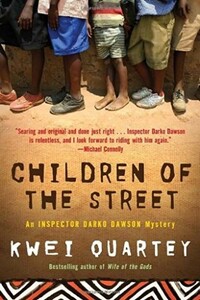
"Searing and original and done just right… Inspector Darko Dawson is relentless, and I look forward to riding with him again." – Michael ConnellyIn the slums of Accra, Ghana's fast-moving, cosmopolitan capital, teenagers are turning up dead. Inspector Darko Dawson has seen many crimes, but this latest string of murders – in which all the young victims bear a chilling signature – is the most unsettling of his career. Are these heinous acts a form of ritual killing or the work of a lone, cold-blooded monster? With time running out, Dawson embarks on a harrowing journey through the city's underbelly and confronts the brutal world of the urban poor, where street children are forced to fight for their very survival – and a cunning killer seems just out of reach.
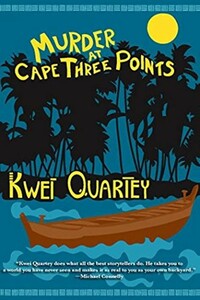
At Cape Three Points on the beautiful Ghanaian coast, a canoe washes up at an oil rig site. The two bodies in the canoe – who turn out to be a prominent, wealthy, middle-aged married couple – have obviously been murdered; the way Mr. Smith-Aidoo has been gruesomely decapitated suggests the killer was trying to send a specific message – but what, and to whom, is a mystery.The Smith-Aidoos, pillars in their community, are mourned by everyone, but especially by their niece Sapphire, a successful pediatric surgeon in Ghana's capital, Accra.
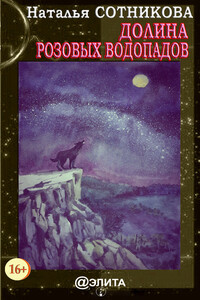
Однажды в руки безработной журналистки Екатерины Голицыной и её друга Николая Артюхова попадает странная флешка с видеозаписью. Известный американский писатель Майкл Доусон просит помочь ему в поисках исчезнувшей жены, Лии, родители которой погибли от рук китайской секты «Чёрное Братство». Следы Лии ведут в Россию.Старая китайская легенда неожиданно оживает в наши дни. Маленький научный городок Техногорск становится центром борьбы добра и зла. Оборотни, карлики, московский вор в законе, всемогущий мэр города и сам Магистр «Черного Братства».Кто может противостоять им? К тому же Николай исчезает самым странным образом.
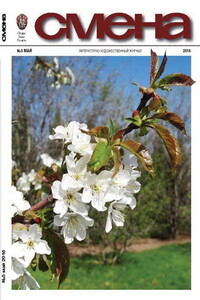
Ирину Александрову в последнее время преследовали одни несчастья: смерть дяди, гибель тети, странные голоса по ночам, толчок в спину под колеса поезда — все эти события были связаны между собой. Но как — ответа не было. А ощущение чего-то страшного, неотвратимого, что должно произойти, нарастало.
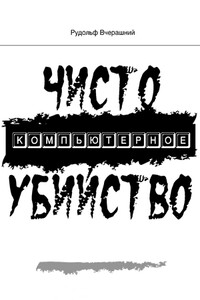
Заместитель командира воинской части в/ч № 755605 — собственно воинской частью был научно-исследовательский институт военно-морского ведомства — капитан первого ранга Гаврилов был обнаружен мертвым в своем рабочем кабинете. Прибывшая опергруппа не обнаружили каких-либо следов, отпечатков и других зацепок. Дело было поручено следователю военной прокуратуры Паламарчуку Василию Аполлинарьевичу.
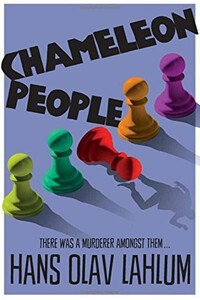
From the international bestselling author, Hans Olav Lahlum, comes Chameleon People, the fourth murder mystery in the K2 and Patricia series.1972. On a cold March morning the weekend peace is broken when a frantic young cyclist rings on Inspector Kolbjorn 'K2' Kristiansen's doorbell, desperate to speak to the detective.Compelled to help, K2 lets the boy inside, only to discover that he is being pursued by K2's colleagues in the Oslo police. A bloody knife is quickly found in the young man's pocket: a knife that matches the stab wounds of a politician murdered just a few streets away.The evidence seems clear-cut, and the arrest couldn't be easier.
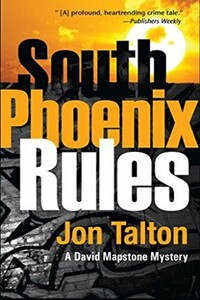
A handsome young New York professor comes to Phoenix to research his new book. But when he's brutally murdered, police connect him to one of the world's most deadly drug cartels. This shouldn't be a case for historian-turned-deputy David Mapstone – except the victim has been dating David's sister-in-law Robin and now she's a target, too. David's wife Lindsey is in Washington with an elite anti-cyber terror unit and she makes one demand of him: protect Robin.This won't be an easy job with the city police suspicious of Robin and trying to pressure her.
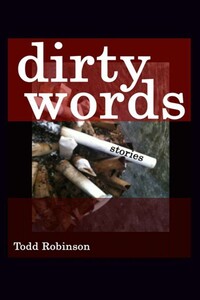
From the creator of the groundbreaking crime-fiction magazine THUGLIT comes…DIRTY WORDS.The first collection from award-winning short story writer, Todd Robinson.Featuring:SO LONG JOHNNIE SCUMBAG – selected for The Year's Best Writing 2003 by Writer's Digest.The Derringer Award nominated short, ROSES AT HIS FEET.THE LONG COUNT – selected as a Notable Story of the Year in Best American Mystery Stories 2005.PLUS eight more tales of in-your-face crime fiction.